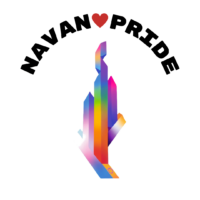As a member of the LGBTQ+ community, I can only personally relate to the ‘G’ part. I’m gay. I don’t know what it is to be lesbian, to be bisexual or transsexual, for example. But I do know what it is to be ‘other’. To feel oppressed. I also know what it feels like to be stereotyped.
The vast majority of my friends and family didn’t know I found the same sex attractive when I told them. I probably don’t fit the profile of what they think a gay person is. I wasn’t like Graham Norton or Paul O’Grady. I like football, I like horse racing, I like playing pool and slugging a few pints at the weekend. But it’s also the case that the gay people I know who do fit the stereotype may seem flamboyant and confident, but it’s often a kind of defensive performance to help them deal with the world: a statement of this is who I am, take me or leave me.
That said, behind both the quiet, unobvious gay person or the wonderfully sparkly and vibrant gay lies a fragility that is within us all. Quite often that fragility has come from feeling ‘other’ and being judged as other.
I think when approaching someone who identifies as LGBTQ+ it is important to recognise this, and it’s probably best to treat them as you would any other person. They are somebody’s son, daughter, brother, sister, neighbour, postman, builder, etc. They are not ‘other’ really. They just feel ‘other’ because of the way society has discussed their sexuality and scrutinised it, and posed the very public questions: Is it OK what they do? Is it OK for us to accept who they love? Is it OK for them to be who they are?
But again, they are not other. They just feel other sometimes because of how they are treated in this context of their sexuality or gender identity. This is a part of who they are, indeed it’s a huge part, but it is not who they are.
Sometimes how they/we are treated can be very overt prejudice and pure hatred. Other times it can be subtle. There have been times when even friends think it is acceptable to make a joke with an innuendo. And while I can deal with it and move on, it still stings a little. I ask myself why they made that reference to a part of my anatomy, or why they made a joke about gay sex? Would they make the same joke to a heterosexual woman about her anatomy or having sex? They think they are doing no harm, but language is very important.
Now I am no expert on trans or lesbian issues, so I approach such people with a compassion and inquisitiveness. They can be as both fragile and strong as the next person. It’s just that their fragility and strengths have been shaped by the difficulties they have experienced and are facing.
My approach when I meet such a person and they want to discuss the difficulties they face due to their sexuality or gender identity is that I want to learn. I want to know why it is that they feel other, and if I have words of solace to offer then I will offer them. I think what we all want to feel in some way is unadulterated acceptance and belonging. Nobody wants to feel ostracised for who they are, but quite often many of us do.
I have called Samaritans twice in the past, and both times my sexuality and the difficulties I was facing because of my sexuality were central to why I was at a low. It wasn’t strictly my sexuality, but it was a crucial part of that mental struggle.
To me, the common ground I share with the LBT+ part of LGBT+ is that we all know what it feels to be other.
When it comes to heterosexuals, it is often the view that so-called “straight” people (as opposed to what, bent people?) can be “allies” to LGBTQ+ people. It may be well-intended, but to me, to say an alliance can be formed with “them” cements this perception that we in the LGBT+ community are other. We are not other. We only feel other because of how we are treated.
If you are heterosexual, the common ground I share with you is that I am just like you in so many ways, excluding my sexuality. But even aspects of my sexuality share a common ground with yours. I can fall in love, just like you. I can have my heart broken, just like you.
We all have a fragility. You are not an ally to me. You are me.
By Paddy Lawlor,
Co-chairperson and Communications Manager of Navan Pride 2023
